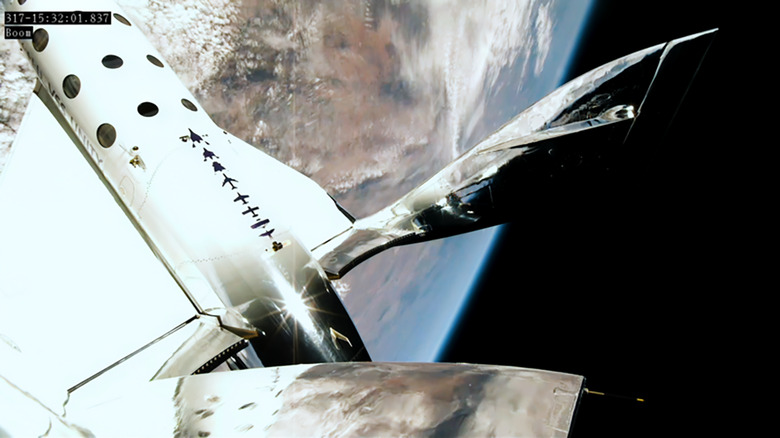Archaeologists Are Losing It Over Virgin Galactic's Latest Spaceflight
Last week, Virgin Galactic completed yet another flight, sending three passengers and an instructor to the edge of space. But it wasn't the living passengers onboard the VSS Unity that had a lot of people in an uproar. Instead, reports note that archaeologists worldwide are upset that one of the passengers carried ancient human fossils into space aboard the flight.
The fossils taken onboard the VSS Unity included some from Australopithecus sediba, which lived roughly two million years ago, researchers estimate. The second fossils were from Homo naledi, an ancient-human species that lived 250,000 years old. Both species were discovered near Johannesburg in South Africa by teams led by Lee Berger.
It was Berger, actually, who received permission from the South African Heritage Resources Agency (SAHRA) to export the fossils that were taken into space. They were carried aboard the flight by Tim Nash, a South African businessman and one of the three passengers aboard Unity.
The taking of these ancient human fossils into space was part of an elaborate publicity stunt to draw attention to "science, exploration, human origins, and South Africa," Berger's request noted. Despite the possible exposure it could bring, archaeologists say that the move put the remains in danger and could have led to the loss of one of the key identifying references for A. sediba, as the shoulder bone taken into space is actually the first A. sediba fossil to be discovered, and thus a reference that helps define the species.
Of course, this story would probably be a lot different if the flight hadn't been successful, not only because of the loss of life, but because of the loss of history possible if the flight had not gone so smoothly. Luckily, that isn't the case.
This also isn't the first time we've seen ancient fossils taken into space. Previously, dinosaur fossils have been taken out of Earth's atmosphere. Still, archaeologists have a right to be upset. If the flight had gone badly, the bones here could have been lost forever. A small but important piece of history would have been lost with them.
